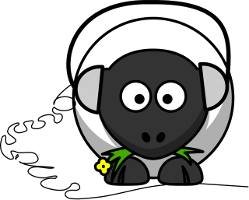
If you have ever been to Italy and have heard some conversations Italians do, you’ve probably already run into the words figo, figata and maybe also fighetto. But what do they mean exactly? And when can we use them? Well, you’re about to learn it!
But first I need to precise something. Figo, figata and fighetto are all informal words in Italian. So, if you want to use them, do it only with friends or people you know very well.
And now, let’s start!
Figo
Figo, or fico, can be used as an adjective or as a noun. And in both cases it means beautiful or cool.
Examples:
Che figo quel cappello!
How cool is that hat!
Marco è un figo pazzesco!
Marco is super hot!
La sorella di Paolo è una strafiga!
Paolo’s sister is super hot!
Troppo figa la tua moto!
Your bike is too cool!
Figata
Figata, or ficata, can be used only as a noun in its feminine form and it always refers to things not to people. Also in this case, the meaning is beautiful or cool.
Examples:
Questo gioco è una figata
This game is cool
L’hotel in cui sono stato il mese scorso è una figata
The hotel I stayed in last month is cool
La grammatica italiana per me è una figata
For me Italian grammar is cool
Le montagne russe sono una figata
The roller coaster is cool
Fighetto
Fighetto, o fichetto, is usually used with a negative connotation. It generally refers to a frivolous boy who takes great care of his image, flaunts fashion-related clothing and attitudes and may show a snobbish demeanor.
Examples:
Giorgio è proprio il tipico fighetto milanese
Giorgio is just the typical Milanese fop
Cavoli! Con quel vestito addosso sembri proprio un fighetto!
Man! With that outfit on you look like a real fop!
All right! Now you can start to use Figo, figata and, if you want, fighetto with your Italian friends! Non è una figata? Isn’t it cool?
If you liked this article, don’t forget to share it with the world and to like my Facebook page.
Credits
Original image by Angela_Yuriko_Smith



 Best products to buy in Italy
Best products to buy in Italy

